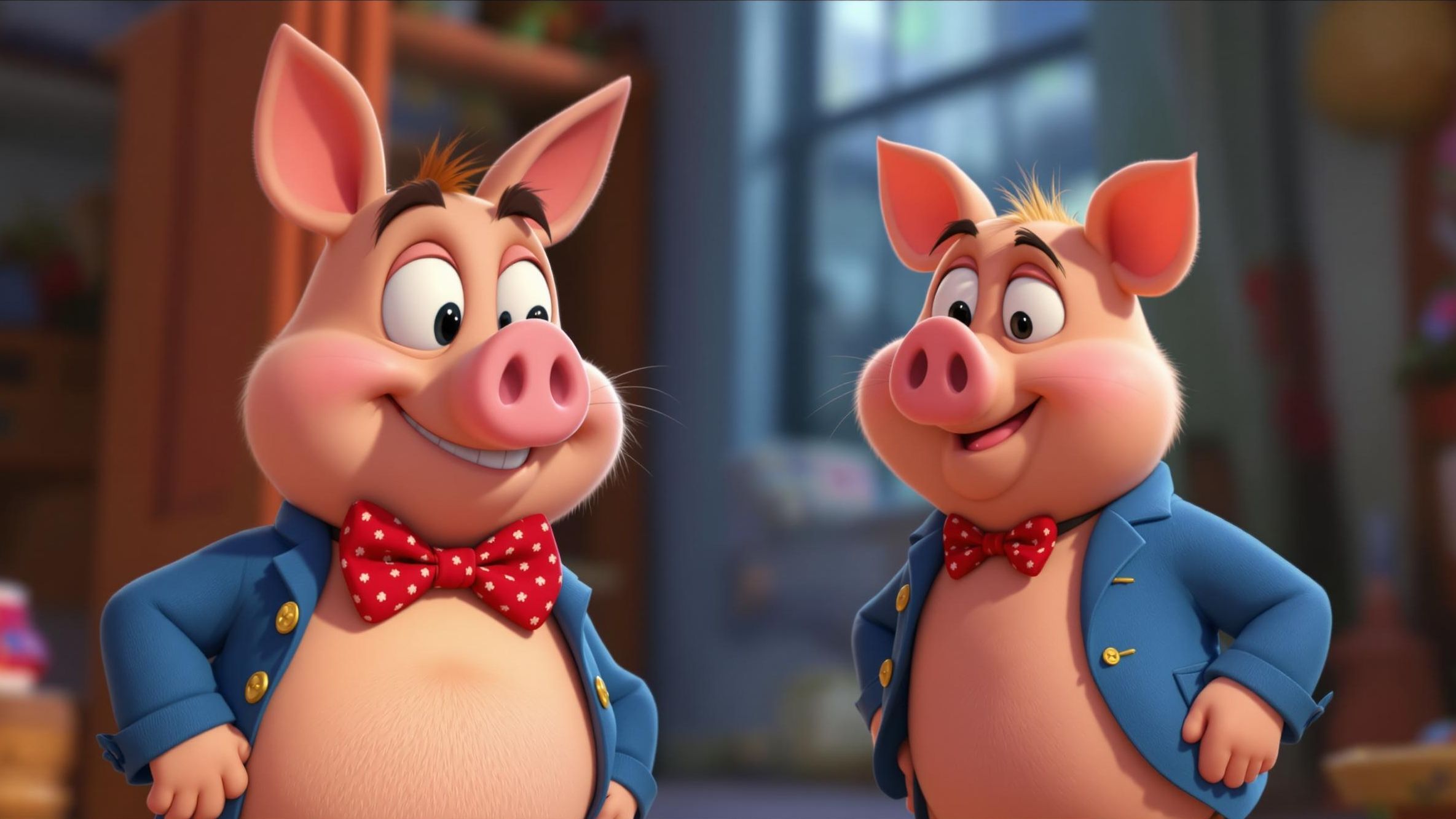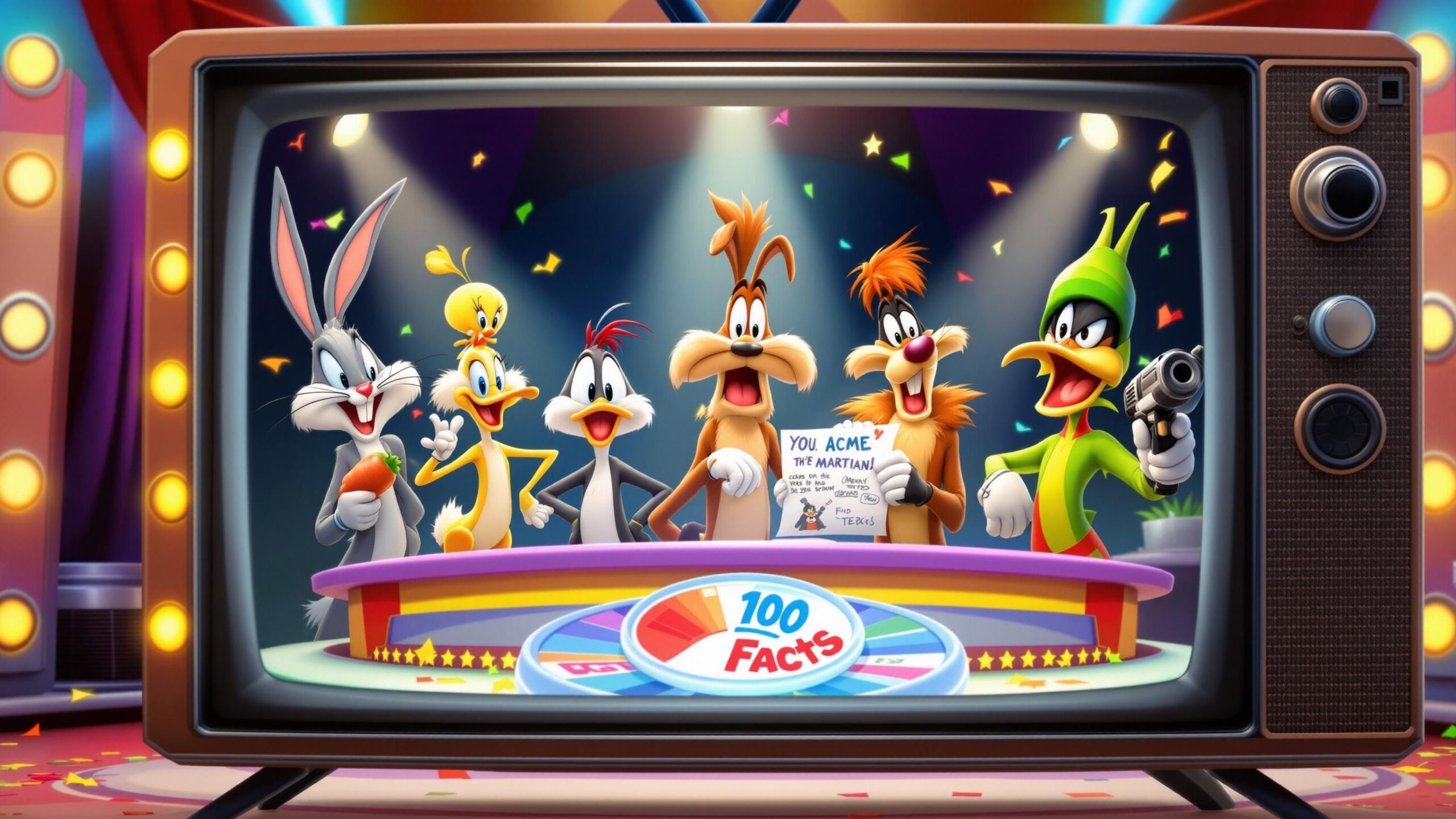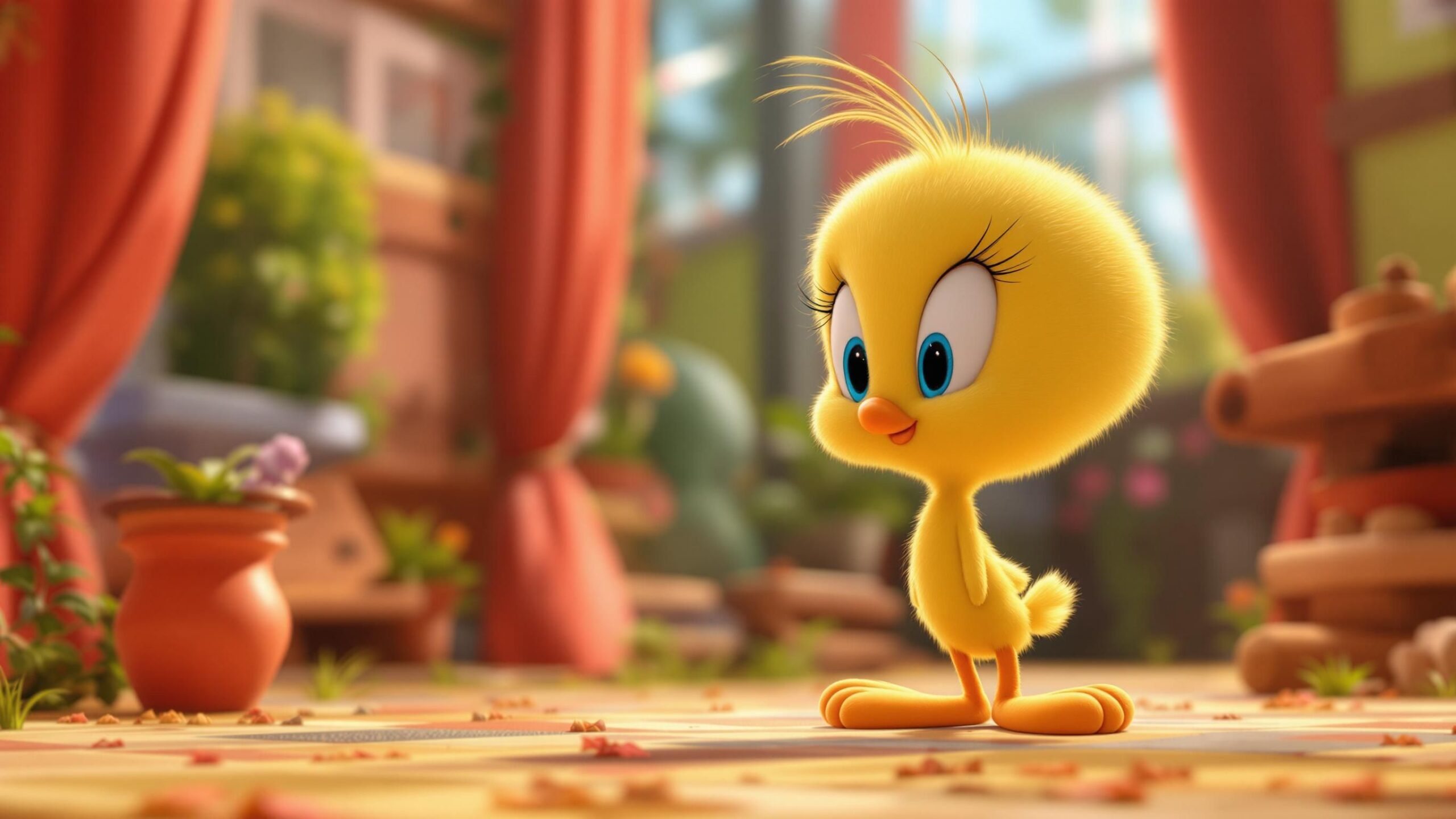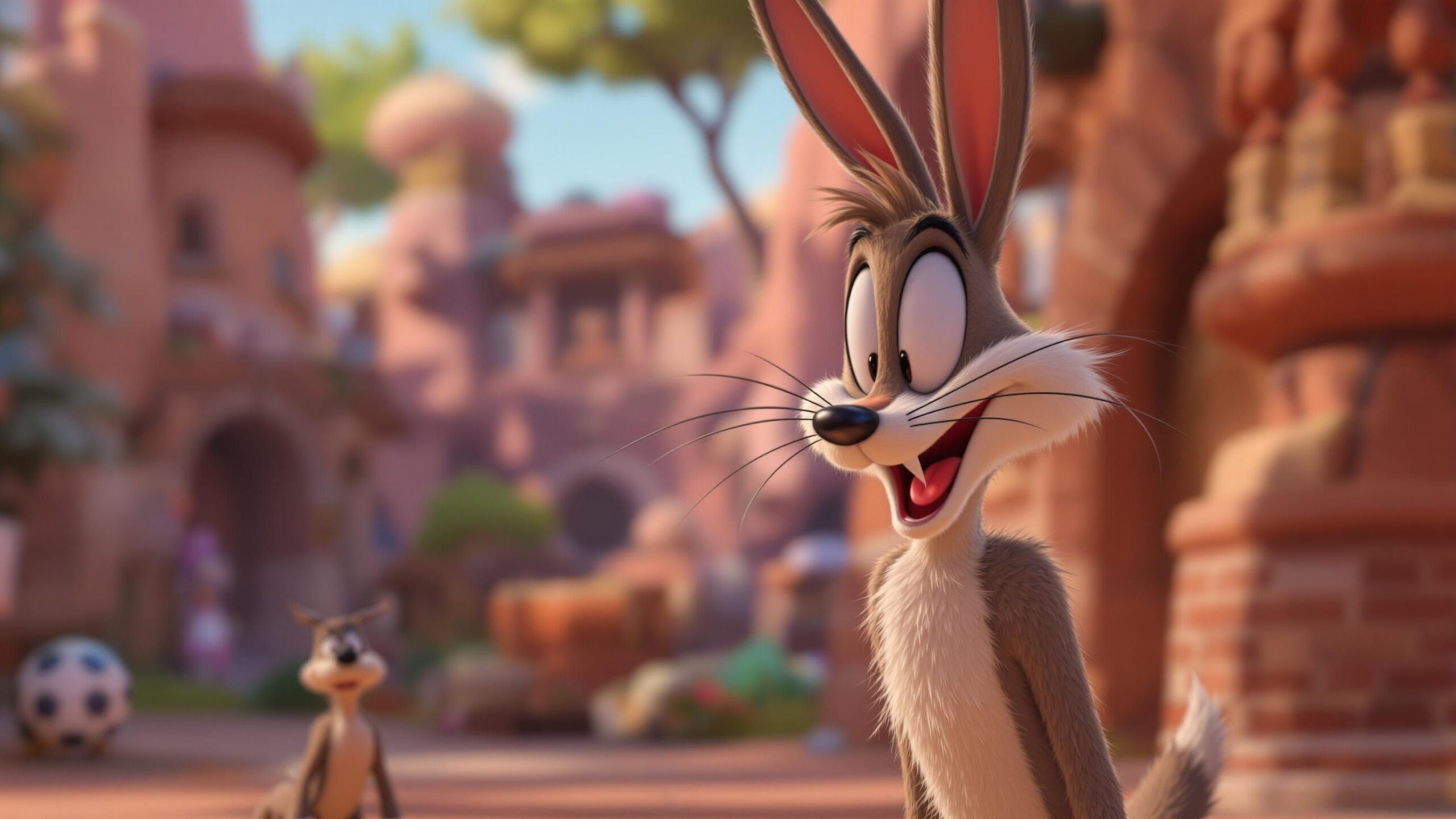When you think of Looney Tunes, your mind might instantly picture Bugs Bunny casually munching a carrot, Daffy Duck losing his feathers over another hilarious fiasco, or Wile E. Coyote desperately chasing the elusive Road Runner. But hidden in plain sight, holding everything together with charm, laughter, and a lovable stammer, is Porky Pig—the real unsung hero who quietly became the heart, soul, and steady backbone of this animated universe. From his humble beginnings in the 1930s to his iconic “Th-th-th-that’s all, folks!” catchphrase, Porky has consistently provided warmth, comedy, and emotional grounding, making Looney Tunes a timeless treasure. Let’s journey behind the scenes and rediscover exactly why Porky Pig truly is the backbone that keeps Looney Tunes forever delightful.
The Humble Origin of an Icon
If you were asked to name the heart and soul of Looney Tunes, your first instinct might be Bugs Bunny, the cleverest rabbit to grace our screens. Or perhaps Daffy Duck, the wonderfully erratic and hilariously chaotic duck, would spring to mind. But let’s pause for a moment and rewind the animated reels back to the 1930s, a time when Looney Tunes was finding its footing. Who was there from nearly the start? That’s right—none other than the eternally lovable Porky Pig.
It might surprise younger generations that Porky was among the first major breakout stars of Looney Tunes, making his debut in 1935’s short, “I Haven’t Got a Hat.” Porky began his career as a supporting character, intended merely as comic relief. But soon, audiences found something inherently charming about this stuttering pig, who somehow embodied both innocence and the mischief Looney Tunes would become famous for. Porky didn’t just amuse viewers; he captured their hearts, offering relatable antics and an authentic sweetness rarely seen in early animation.
Porky’s Personality: A Perfect Mix of Charm and Comedy
What makes Porky truly special is his unique blend of genuine kindness and comedic genius. Unlike his co-stars Bugs or Daffy, whose humor often thrives on clever trickery or flamboyant antics, Porky finds laughs through a sweet sincerity and relatable clumsiness. Whether he’s fumbling through everyday tasks or becoming entangled in ridiculous escapades, Porky’s mishaps never come from malice. Instead, they resonate with audiences precisely because they mirror our own quirks and foibles.
His trademark stutter isn’t just funny—it’s endearing, turning what could have been seen as a comedic gimmick into a defining trait of his lovable nature. Porky’s stammer added rhythm to his humor, creating memorable catchphrases and classic punchlines. Audiences didn’t laugh at Porky; they laughed with him. They rooted for him through every slip and stumble, recognizing a bit of themselves in this humble little pig who kept smiling through life’s comedic chaos.
The Unsung Straight Man
Every legendary comedy duo has an unsung hero, the straight man who grounds the humor and makes it truly pop. Think Abbott and Costello, or Laurel and Hardy. For Looney Tunes, Porky Pig often filled this crucial role, acting as the comedic foil to louder, zanier characters like Daffy Duck and Bugs Bunny.
With Daffy, Porky’s calm demeanor serves as a brilliant counterbalance to the duck’s frantic energy. Episodes like “Duck Dodgers in the 24½th Century” showcase Porky’s invaluable ability to ground ridiculous scenarios. As Daffy (aka Duck Dodgers) spirals into hilarious hysteria, Porky quietly keeps the mission on track, delivering subtle comedic timing that enhances every scene. Without Porky’s understated steadiness, the humor would risk becoming unanchored. Instead, he elevates the absurdity, subtly guiding it toward comedic perfection.
Similarly, Porky’s pairings with Bugs Bunny created memorable dynamics. In cartoons like “Porky Pig’s Feat,” Porky’s earnest attempts at practicality hilariously contrast Bugs’s playful irreverence. Porky provides a relatable lens through which audiences experience the wild Looney Tunes universe, ensuring that even Buggs’s zaniness stays relatable and engaging.
A Versatile Talent in Endless Scenarios
Porky Pig isn’t just a sidekick—he’s a remarkably versatile character, capable of carrying shorts entirely on his own merit. In fact, Porky starred in dozens of cartoons, effortlessly shifting between roles from naive adventurer and innocent homeowner to spirited salesman and eager inventor. His adaptability allowed him to thrive in almost any comedic scenario imaginable, securing his place as the sturdy backbone of the Looney Tunes franchise.
One exceptional example is “Porky in Wackyland,” an unforgettable, surreal journey that stands out as one of animation’s greatest masterpieces. Porky ventures into an eccentric world filled with bizarre creatures and nonsensical landscapes, guided by his boundless curiosity and endless determination. This short demonstrates Porky’s incredible talent: even amid the most bizarre and outlandish situations, he remains genuinely likable, pulling viewers along on wild adventures that balance comedic chaos with sincere storytelling.
An Iconic Closing Line that Defined a Generation
Perhaps nothing symbolizes Porky’s integral place in animation history better than his legendary closing phrase: “Th-th-th-that’s all, folks!” More than just a memorable catchphrase, this line became synonymous with Looney Tunes itself, neatly encapsulating the playful spirit and joyful humor of the entire series. Porky’s iconic farewell reassured audiences of an endearing consistency—even after wild, unpredictable adventures, viewers could always rely on Porky’s friendly, stuttering goodbye.
Moreover, this signature closing line created an emotional connection with audiences, transcending generations to become part of our collective pop-cultural lexicon. Whether hearing it at the end of Saturday morning cartoons or nostalgically recalling it decades later, Porky Pig’s farewell offers a comforting, timeless reminder of childhood joy and innocence.
Porky’s Lasting Legacy and Cultural Impact
Over nearly a century of cartoons, Porky Pig has proven that quiet, gentle humor can be just as impactful as explosive slapstick or rapid-fire wit. His ability to portray vulnerability, sincerity, and unintentional comedy has secured his legacy within animation history, influencing countless characters who followed in his footsteps. Without Porky’s enduring appeal, Looney Tunes might never have become the beloved global phenomenon we cherish today.
Culturally, Porky has also had considerable influence, appearing in countless spin-offs, cameos, and parodies. His charm and humor have made him a reliable ambassador for Looney Tunes, introducing generations of new fans to the magic of animation. Beyond entertainment, Porky has also subtly championed acceptance, showing millions of viewers how embracing our own imperfections makes life richer and more rewarding.
Porky Pig—The True Heartbeat of Looney Tunes
While other characters might dazzle with flashier personalities or louder punchlines, Porky Pig quietly maintains the rhythm and heart of the Looney Tunes universe. He offers viewers emotional warmth, reliable laughs, and the comfort of genuine humanity, all wrapped up in one stammering, loveable character. His understated comedy, adaptability, and earnest charm truly make him the backbone—the steady, integral force keeping Looney Tunes engaging, heartwarming, and timeless.
So next time you watch a Looney Tunes cartoon, take a moment to appreciate the gentle, sincere, and ever-endearing character who has quietly and lovingly kept this wild animated world spinning since its very beginning. Th-th-th-that’s Porky Pig, folks—Looney Tunes’ true backbone and unforgettable star.




